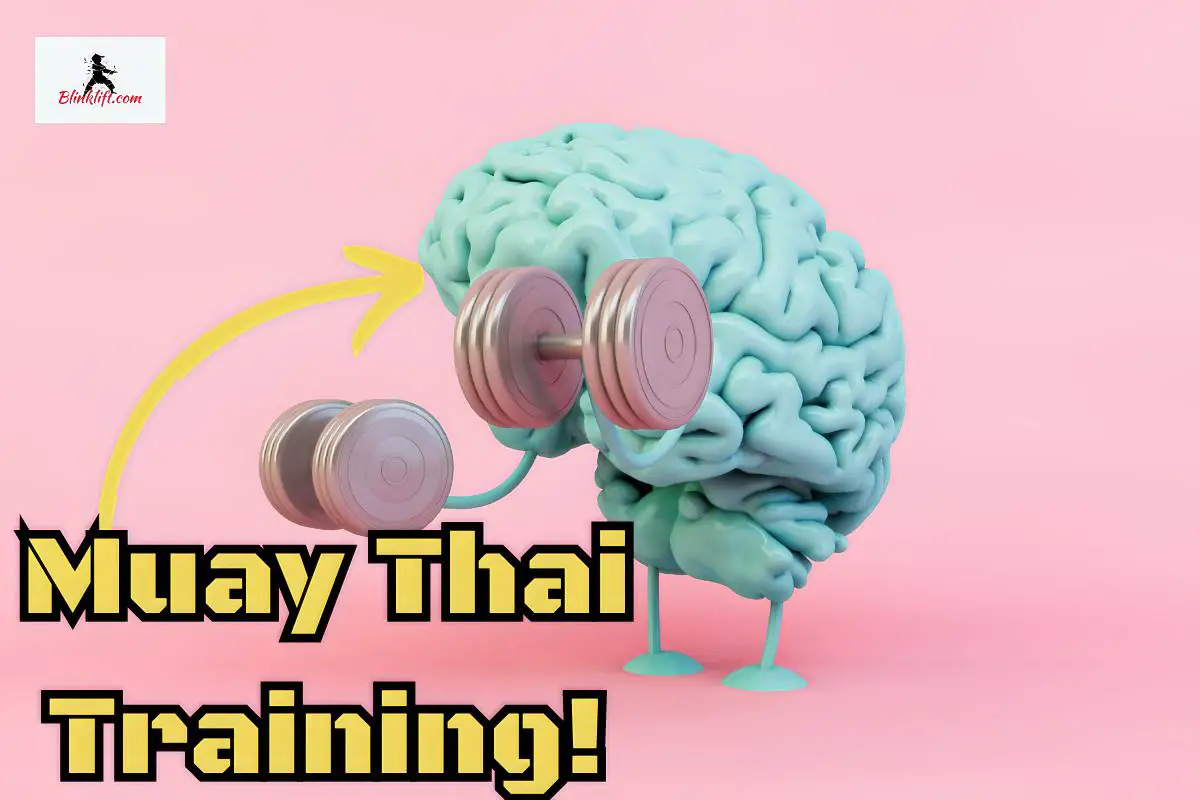As you probably know, Muay Thai is one of the most dangerous combative sports in the world. It simply includes too many ways to get injured. One of the most feared injuries amongst Muay Thai trainees and fighters is brain damage and head trauma. Let’s examine whether that’s a real threat.
Muay Thai can cause brain damage, according to a study that examined the effects of sparring on the cognitive function of fighters. Likewise, about 1 out of 20 injuries amongst Muay Thai trainees are concussions, which can lead to post-concussion symptoms and eventually, head trauma and brain damage.
So the threat exists. Now, how can we solve it? Well, this is precisely what we’ll review in this article. My goal with this article is to give you practical tools to avoid brain damage in your Muay Thai training.
Let’s face it, Muay Thai is one of the best workouts out there. It’s also enjoyable and can provide numerous other benefits, such as increased confidence and self-esteem. So the solution won’t be to cease all training immediately.
Let’s delve straight into the first part, where we examine various scientific studies that examine whether brain damage in Muay Thai is real.
Table of Contents
- Can Muay Thai Cause Brain Damage?
- Can Muay Thai Cause Concussions?
- Can Sparring Cause Brain Damage in Muay Thai?
- How to Avoid Brain Damage in Muay Thai?
- Does Competing in Muay Thai Include Risk for Brain Damage?
- Final Words
Can Muay Thai Cause Brain Damage?
Let’s now discuss the very basics of things. Whether Thai Boxing can cause brain damage is a no-brainer (pun intended.) This is actually a fairly serious topic, so I’ll keep the puns outside this article (other than this one.) Let’s examine whether head trauma and brain damage can be caused by training in Muay Thai, aka “the art of eight limbs.
Muay Thai can cause brain damage, according to numerous studies and research papers. In fact, 5.5% of all injuries among Muay Thai fighters (amateurs and professionals) are concussions, which can lead to both short and long-term head trauma and damage. As a result, taking precautions in training is critical.
Let’s now examine a fantastic study that examines the brain effects of boxing. Now, because of a lack of studies on Muay Thai specifically, we’ll review various research papers that were conducted on the sport of Boxing, which includes similar impacts, and the same punches, which means that both combative sports have similar head trauma risks.
From the established literature on the brain effects of boxing (much of which has design limitations) come a picture of the clinical features of CTE and the recognition that greater exposure to head trauma is associated with increased risk of long-term neurological disease and that a variety of imaging findings can be seen in fighters.
SOURCE
Essentially, it can be dangerous to expose yourself to head trauma, obviously. Continuous kicks and punches to the head can potentially lead to such exposure. Watch the following fight to see the number of times each fighter gets hit in the head.
Can Muay Thai Cause Concussions?
Now that we understand that Muay Thai includes risk for brain damage, let’s review the literature regarding concussions. As you might know, knockouts are a great possibility in Muay Thai. All it takes is a few powerful kicks or punches to the face to cause severe head damage to your opponent.
Concussions can be caused by Muay Thai sparring and professional/amateur fighting. Likewise, it can be caused by doing pad work, particularly if you don’t hold the pads correctly. Therefore, it’s important to wear headgear to prevent concussions when training in such environments.
The following video shows knockouts in Muay Thai fights. View discretion advised.
Let’s first understand who is at greater risk, less experienced or more experienced trainees.
Lighter, younger, and more experienced fighters were at increased odds for injury within this sample.
SOURCE
The same study also examined the rate of injury amongst Muay Thai fighters. Concussions, which can be harmful to the brain, as you can imagine, gained their honorable spot at 5.5% out of all injuries. And, if you have ever experienced a concussion, there’s a 20% chance that you will experience post-concussion symptoms, for up to six weeks.
So, Muay Thai definitely puts its trainees at risk for long-term head trauma and brain damage.
Can Sparring Cause Brain Damage in Muay Thai?
I’ve trained in numerous martial arts up until this point in my life. And Muay Thai, by far, has been the martial art I sparred in the most. So what does that mean? Essentially, sparring is when you’re fighting another trainee, in training, in a rather safe environment. That means that you want to go anywhere from 30-70% force.
Sparring is the primary activity you’ll do that’ll cause brain damage in combative sports, including Boxing, Muay Thai, MMA, and Kickboxing. That’s the case because sparring is the primary training method that you’ll try and deliberately hit the opponent’s head, which means he wants to hit yours.
One hour after sparring boxers showed increased corticomotor inhibition, altered motor unit recruitment strategies, and decreased memory performance relative to controls, with values returning to baseline by the 24 h follow up.
SOURCE
From the study I’ve cited above, you’ll notice that boxers showed symptoms of altered motor functioning after sparring. That should make total sense to you, as it’s the closest simulation you’ll have to a real fight in training.
… an association has been reported between the number of bouts fought and the development of neurologic, psychiatric, or histopathological signs and symptoms of encephalopathy in boxers.
SOURCE
How to Avoid Brain Damage in Muay Thai Spars
I want you to take as many precautions as possible when sparring in your Muay Thai session. First, wearing headgear is a wise step, as it’ll reduce the impacts your face will take. Likewise, you might want to limit the number of spars you do that include the head. Essentially, if you remove the head from the equation and don’t allow hits to it, you’ll be safe from brain damage. That said, this solution isn’t realistic for real fights.
If you don’t own a head guard yet, follow this link to see which head guards will help you actually avoid brain and head damage in Muay Thai.
How to Avoid Brain Damage in Muay Thai?
Taking as many precautions to avoid brain damage in Muay Thai is key. The primary aspect of training I’ll review is sparring. As I’ve mentioned already, sparring is one of the most dangerous aspects of training, as it’s the closest you’ll get to a real fight.
Here are various precautions you can take to avoid brain damage in Muay Thai.
#1 – Wear a Head Guard
The first precaution is to wear headgear as often as possible. Sometimes, even when you do pad work, you might accidentally get hit in the face. So if you’re with someone you’ll prefer to wear headgear with, wear it, don’t be timid.
And again, to see which head guards are best to prevent head trauma, follow this link.
#2 – Non-Head Sparring
The second precaution is to limit the number of regular spars you indulge in. If there’s a particular training session where you feel it’s simply too much, tell your coach of your situation. Every sane coach out there will tell you to do non-head sparring, in which you can only kick and punch the body.
The head is out of the equation.
#3 – Listen to Your Body
The last precaution is to listen to your body. What better indicator of injury is there other than your body? Do you feel your head hurts and you want to stop sparring? Do precisely that. Stop sparring if you feel something is off.
Does Competing in Muay Thai Include Risk for Brain Damage?
Competing in Muay Thai is one of the easiest ways to experience brain and head damage. It includes such risk because you and another fighter are going to try to hurt each other as badly and as quickly as possible. Of course then that there will be a risk of brain damage and head trauma.
Let’s cite another study that was conducted on amateur boxers. And again, some would argue that Muay Thai has a greater risk for brain damage than boxers because it includes knees, elbows, and kicks, which can be much more painful and cause more damage.
Amateur boxing is associated with an increased risk and an earlier onset of cognitive impairment and dementia.
SOURCE
Final Words
Indeed, Muay Thai is one of the most dangerous combative martial arts globally. It includes many risks, such as hand, shin, and foot injuries. However, the one injury that makes people shiver is brain damage.
The symptoms of brain damage are what many people want to avoid the most. As a result, taking precautions to defend yourself in such a dangerous combative sport—is not only necessary but key to improving your well-being and gaining the most out of your training.
Here are other articles you’ll benefit from reading:
Boxing vs. Muay Thai – The Ultimate Showdown (Knockout)
Muay Thai vs. MMA – Who Will Win in a Real Fight?
Muay Thai – Here’s Why You Feel So Good Doing It

